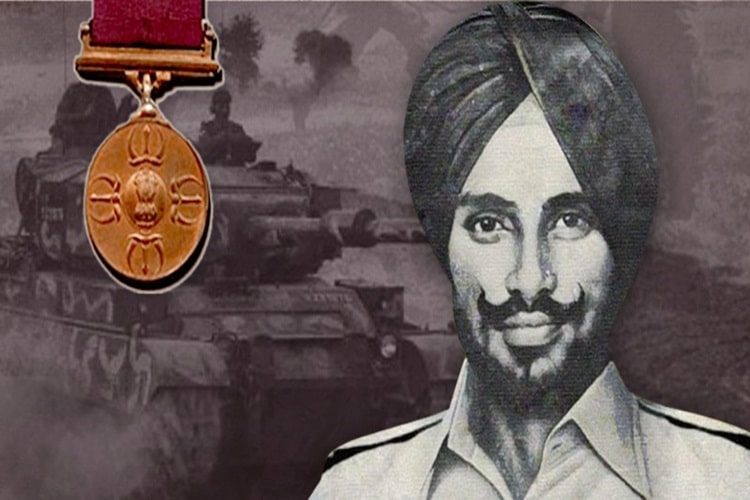Nirmal Jit Singh Sekhon (17 July 1945 – 14 December 1971), was an officer of the Indian Air Force. He was posthumously awarded the Param Vir Chakra.
Life and Career
Nirmal Jit Singh Sekhon was born on July 17, 1945, in Rurka Kalan, Punjab, India. He was a student at Government High School in Patiala and later joined Khalsa College in Amritsar. In 1967, he joined the National Defence Academy (NDA) and was commissioned into the Indian Air Force in June 1967.
During the Indo-Pakistani War of 1971, Flying Officer Nirmal Jit Singh Sekhon was serving as a pilot with the No. 18 Squadron, Indian Air Force. On December 14, 1971, the Pakistani Air Force launched a surprise air raid on the IAF base at Srinagar, intending to destroy the IAF’s assets on the ground. The attackers faced heavy resistance from the Indian Air Force, and Sekhon was scrambled to counter the threat in his Folland Gnat.
Despite being outnumbered and facing intense enemy fire, Sekhon engaged the enemy in air combat with exceptional skill and courage. His heroic actions resulted in the downing of two Pakistani Sabre jets, but unfortunately, his aircraft was hit, and he was killed in the process. For his exceptional bravery, Flying Officer Nirmal Jit Singh Sekhon was posthumously awarded the Param Vir Chakra on January 26, 1972.
Nirmal Jit Singh Sekhon sacrificed his life in the line of duty on December 14, 1971, defending the Srinagar airbase.
Award and Legacy
Flying Officer Nirmal Jit Singh Sekhon was posthumously awarded the Param Vir Chakra, India’s highest military decoration for valor, on January 26, 1972. The Param Vir Chakra is awarded for acts of exceptional bravery and self-sacrifice in the face of the enemy. Sekhon’s courage and determination in defending the Srinagar airbase during the 1971 Indo-Pak war were recognized with this prestigious honor.
Sekhon’s story serves as an enduring source of inspiration for generations of Indians, particularly those aspiring to serve in the armed forces. His courage under fire and commitment to duty set a high standard for military personnel.
In honor of his memory, the Indian Air Force Station at Halwara was renamed “Air Force Station Sekhon.” This renaming stands as a perpetual tribute to his contributions and sacrifice.
Nirmal Jit Singh Sekhon is remembered nationally as a symbol of heroism. His name is invoked during discussions about India’s military history, especially concerning the valor displayed by armed forces personnel in times of conflict.
The anniversaries of Nirmal Jit Singh Sekhon’s death and his Param Vir Chakra award are often marked by commemorative events, ceremonies, and tributes across the country. These events serve to keep his memory alive and honor his sacrifice.
Within the Indian armed forces, Sekhon is remembered as a role model. His actions epitomize the core values of courage, duty, and sacrifice that define military service.

